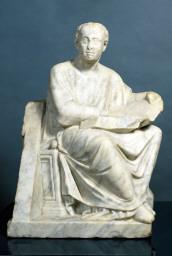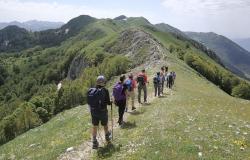The inspiration medieval artists drew from Italy's classical past is spotlighted in an exhibition currently showing in the Adriatic coastal resort of Rimini.
Entitled 'Exempla', the show explores the rebirth of classical taste during the 13th century, focusing on developments in the circles of emperor Frederick II, renowned for his love of culture and learning.
Although this was not the first medieval passion for revisiting past glories, the variety and intensity of output under Frederick II made it one of the greatest.
The exhibit looks at how medieval artists used ancient Greek and Roman styles as models for their own work, seeking out and rediscovering past masterpieces.
It is based on new research carried out by academics in recent years, mapping these similarities and providing a clearer picture of artistic developments in the 1200s.
Featuring over 100 pieces, the exhibit starts with works by Nicola Pisano (1220-1284), considered by some to be the founder of modern sculpture. Today Pisano is famous for his classical Roman
sculptural style but the exhibit explores how that style came about, examining different stages of his artistic development.
It showcases several original pieces by the sculptor, including a famous relief that adorned Perugia's Maggiore Fountain until recently. Depicting the mythical figures of Romulus and Remus suckled by the wolf, the marble relief was completed jointly by Pisano and his son, Giovanni.
There are also a number of pieces by the Tuscan-born sculptor Arnolfo di Cambio (1240 - 1300), which show a greater concern for religious themes, evidenced in his severity of expression and form.
A key attraction of the show is that visitors are able to admire medieval masterpieces - for the most part sculpture - alongside the classical works that acted as models, or 'exemplas'.
One particularly striking example aligns a 'Woman With Amphora' by Arnolfo with a Roman relief showing a nymph from behind.
While the former is not a direct copy of the latter, the inspiration of the Roman relief is clear in the medieval sculpture.
Where original works could not be moved, the curators have drawn parallels through the use of photography.
In addition to the sculptures, there are also several striking paintings, one of which attributed to Pietro Cavallini.
The exhibit wraps up with two pieces by the sculptor Andrea Pisano (1290-1348), who was working towards the end of this era: a beautiful Madonna with Child and 21 bass relief panels, which once adorned the Santa Maria del Fiore bell tower in Florence.
Exempla runs in Rimini's Castel Sismondo until September 7.




